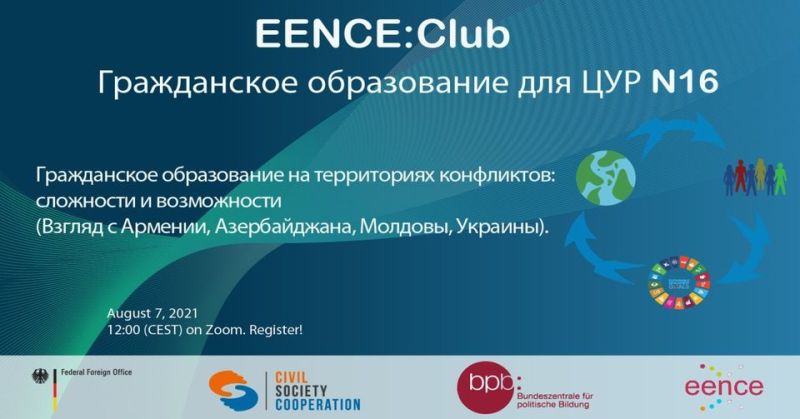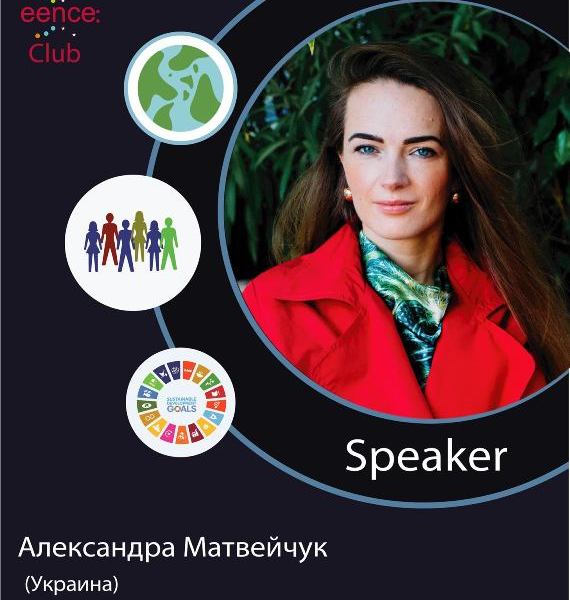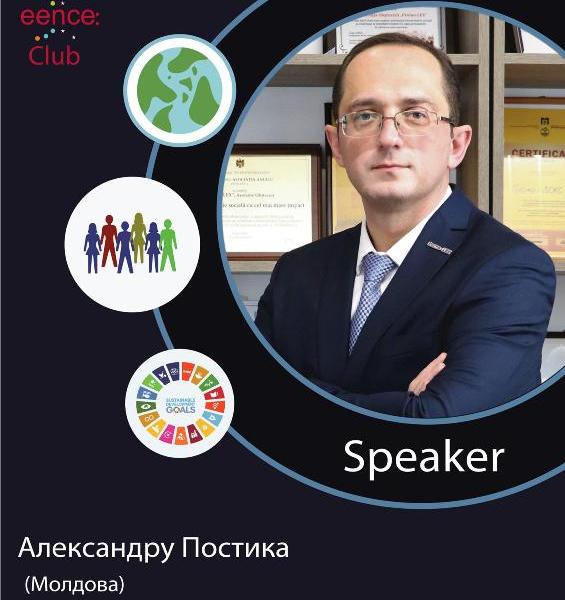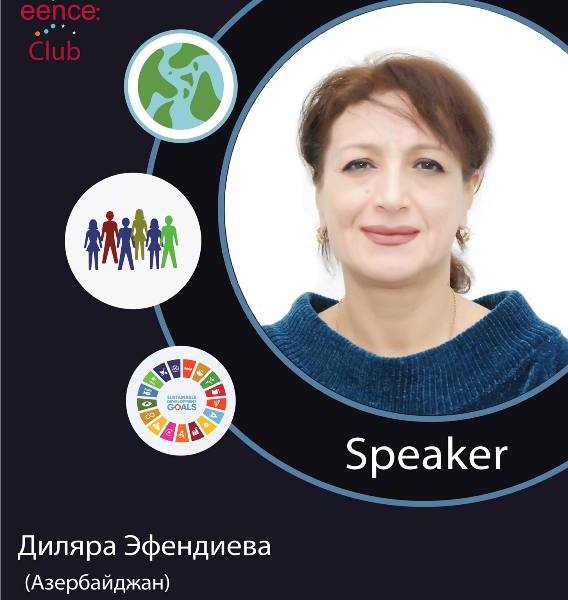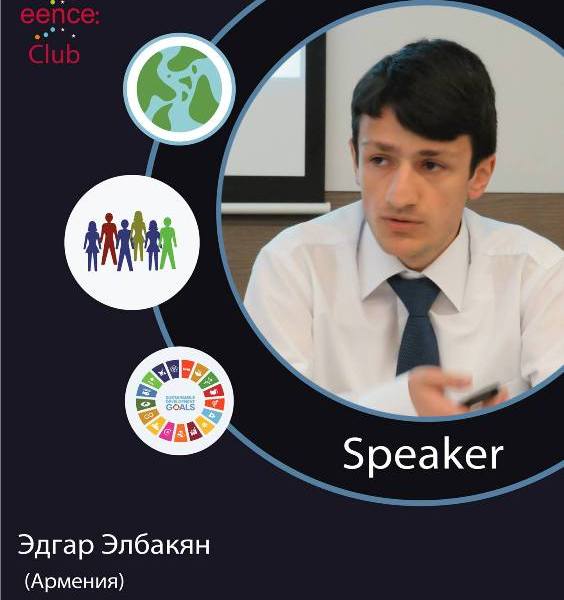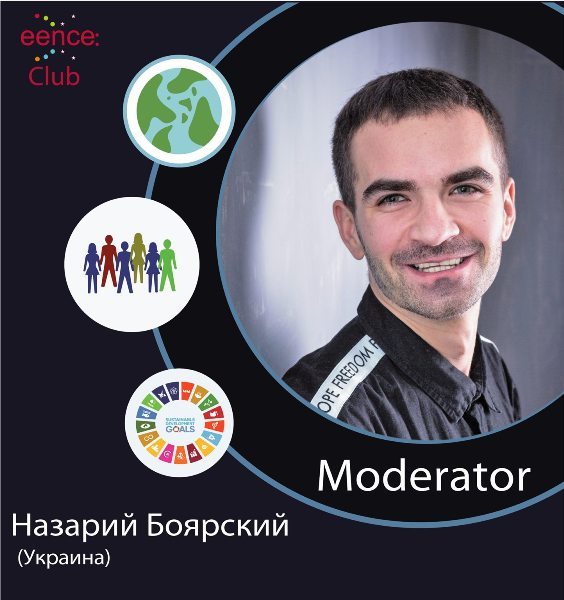The difficulties and opportunities of civil education in the territories of conflicts were discussed at the fifth EENCE:Club
Experts from Armenia, Azerbaijan, Moldova and Ukraine shared their views on the topic “Civil education for SDGs N16. Civil education in conflict territories: difficulties and opportunities”.
The purpose of the discussion is to draw the attention of interested providers of civic education to the territorial conflicts in the Eastern Partnership countries and Russia, and the specifics of working in these territories.
During EENCE:Club-5 considered three big issues from different points of view: the history of conflicts and their current state, the role of civil education in the conflict, ways to improve the effectiveness of civil education for conflict resolution.
The speakers of the meeting shared their expert vision of the topic: Chairman of the Board of the Center for Civil Liberties Alexandra Matveychuk (Ukraine), director of the Human Rights Program of the Promo LEX Association Alexandru Postica (Moldova), director of the Civil Platform for Peace between Armenia and Azerbaijan Dilara Efendieva (Azerbaijan), political scientist, junior researcher at the Center for Strategic Studies of the Yerevan State Institute Edgar Elbakyan (Armenia). The meeting was moderated by Nazariy Boyarsky (Ukraine), a human rights activist, non-formal education coach, coordinator of the working group “Civil Education in Territorial Conflict Zones” of the Civil Education Network in Eastern Europe (EENCE).
– Any war and any armed conflict is not just military actions, it is also a war of narratives, it is a war of values. Civic education, in my opinion, should form the right narratives and the right democratic values: non-violence, solidarity, respect for human rights, the rule of law, – Alexandra Matveychuk is sure.
The participants managed to make an overview of the situation in the Transnistrian region, Nagorno-Karabakh, in the East of Ukraine (part of the Luhansk and Donetsk regions), the Crimea, to determine the difficulties and opportunities for implementing civic education programs in these territories.
EENCE:Club’s aimed at promoting democratic development and civic education through the creation of a platform for public debates and the exchange of experience. The project topics focus on the UN Sustainable Development Goals.
The project is supported by the Federal Agency for Civic Education (Bundeszentrale für politische Bildung/bpb) using funds appropriated by the Federal Foreign Office of Germany.
See also:
How art can make life in cities better? The second discussion EENCE:Club took place
Art as a tool of public influence: the third meeting EENCE:Club took place
4 EENCE:Club: Discussed ecosystems and environmental sustainability

